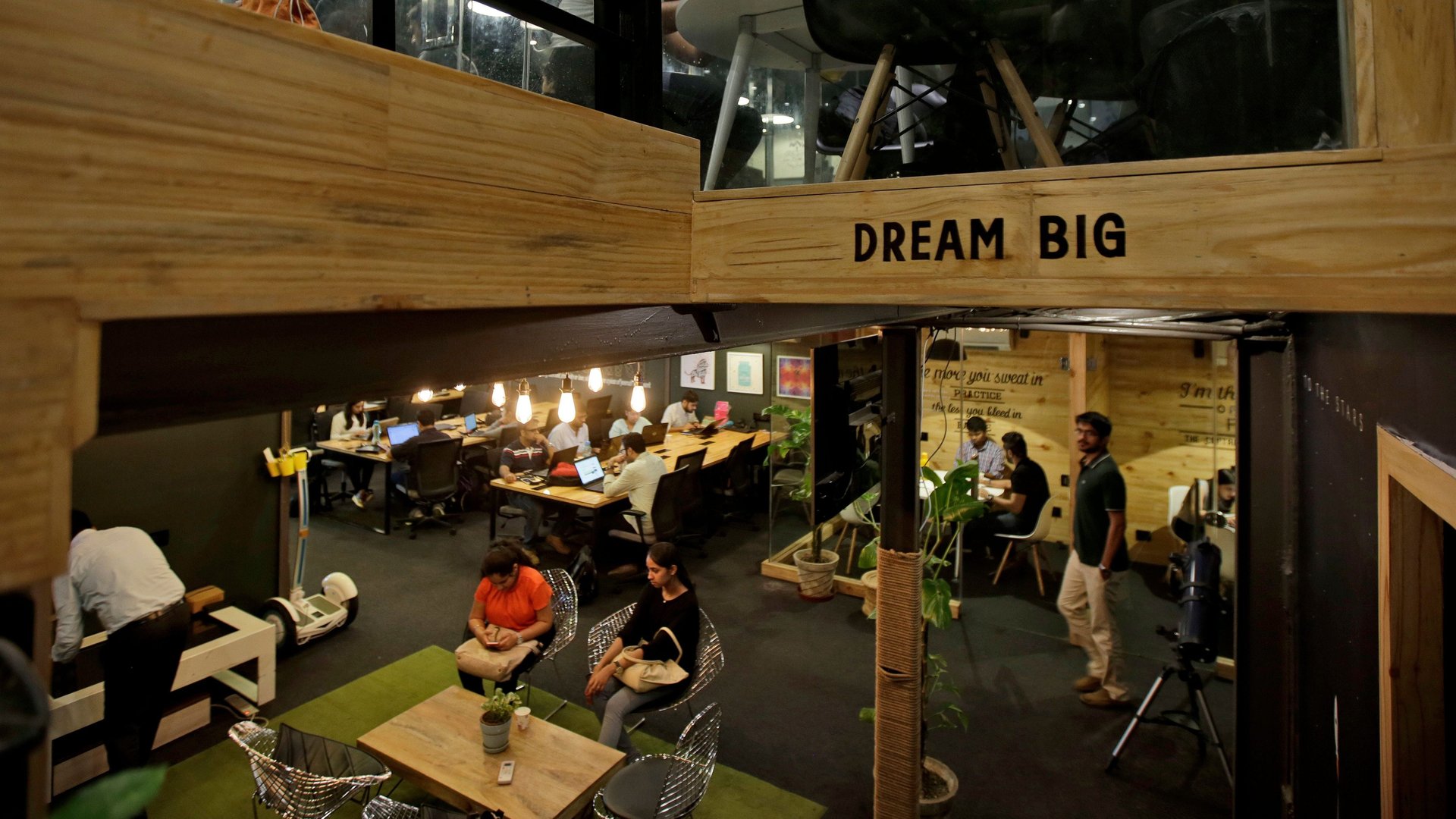India is just not enough for some Indian startups
India’s homegrown startups are turning globetrotters.


India’s homegrown startups are turning globetrotters.
Having grown firm roots in the country, a number of young Indian companies are expanding overseas. On June 20, hotels chain OYO announced it was venturing into China, its third international market after Nepal and Malaysia. ”The country’s tourism industry is on the cusp of booming and flourishing wherein it enjoys a strong influx of both domestic and international tourists; also the market is as fragmented as the Indian hotel market,” said Ritesh Agarwal, founder and CEO of OYO.
The company has already listed over 11,000 rooms across 26 Chinese cities on its portal. It hopes to cash in on the over 700,000 Indian tourists who visit that country each year.
In January, Bengaluru-based Ola made its international debut when it launched operations in Perth, Australia. Despite Australia’s ride-hailing market being fairly crowded with international and local players like Uber, GoCatch, and Taxify, Ola has already expanded to six cities and signed up over 30,000 drivers there. It has reportedly also been eyeing launches in Bangladesh and Sri Lanka.
Others in this expanding list include Indore-based Wittyfeed, a website that creates shareable content and which now has a presence in the UK, US, Canada, Australia, Mexico, and Argentina, and Bengaluru-headquartered healthcare platform Practo that has made inroads into the Philippines, Indonesia, Singapore, and Brazil.
“Businesses, by very definition, are aspirational and going international is part of it. It gives more exposure, better access to financial investors, and of course a hope of revenue growth,” said Yugal Joshi, vice-president of Texas-based consulting firm Everest Group. “The valuation also gets enhanced if a startup is globally focused, has global leadership with cross-country experience, and so on.”
What approach they take in their overseas expansion could depend on their capabilities back home and the needs of the new market.
In search of success
Some use their existing resources to penetrate a market and establish themselves.
For instance, Cleartrip, India’s second-largest online travel agent, began its UAE operations in 2012 as there was a large and growing air corridor between India and the middle east. It now holds over a 60% market share in the UAE ticketing industry, the company said. It has also launched in other countries in the region, like Kuwait, Bahrain, and Oman.
“We have run our middle east business for five years off an extremely low-cost base, leveraging on our resources in India, and thus it has been extremely profitable,” said Stuart Crighton, CEO of Cleartrip. “Having multiple markets in our portfolio also allows us to increase returns by allocating capital more efficiently.”
After having operated in a country like India, which is rife with problems ranging from poor networks to outdated equipment, expanding to a new country can often be less challenging.
“You’ve built a technology that can work in the toughest conditions…to take it elsewhere is the least problematic (bit),” said Pankit Desai, co-CEO at Mumbai-based cybersecurity startup, Sequretek. “And our product is fairly domain-insensitive and product-insensitive. We’ve already taken care of the upfront cost to build our product. The only thing to invest in is go-to-market.”
Yet, overseas expansion comes with its own set of problems.
Striking a balance
In May 2016, restaurant ratings and food delivery firm Zomato pulled out of nine international markets to reduce its burn rate (the rate at which a company spends money before starting to make profits).
There is not much scope to reduce a burn rate in a new country because every market requires heavy spending to localise. “Say, if a Flipkart wanted to go global, it would need to sign on large logistics ecosystem with heavy physical infrastructure investments,” Desai of Sequretek explains.
The key is to know when to stop because spreading a small business too thin could hurt a company.
Also, money is only one part of the concern. Others include the time and effort invested to understand local cultures and beliefs, attracting talent, and competing with existing or new players, said Mayur Saraswat, head of business (north) at staffing firm Teamlease. “Expansion will be profitable but new product line, innovation, and cost should be looked at,” he said.
So while OYO and Ola’s expansion abroad may be a sign of the Indian startup ecosystem’s evolution, how the bold moves pan out will be worth watching out for.